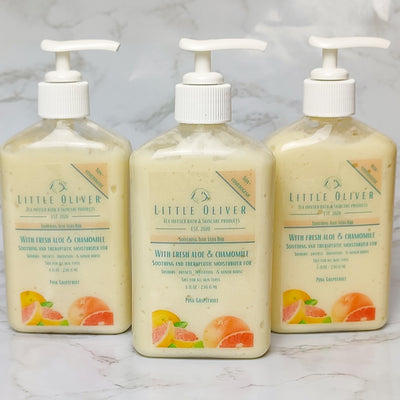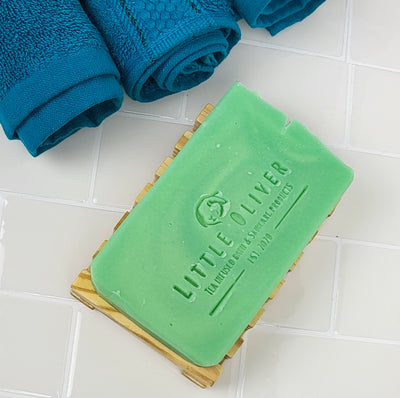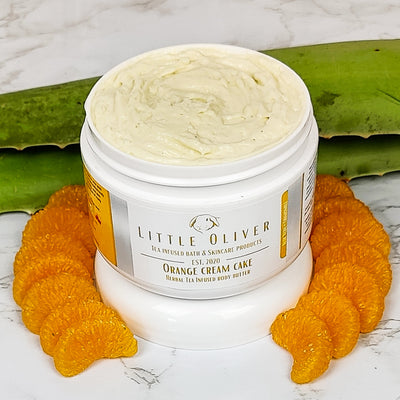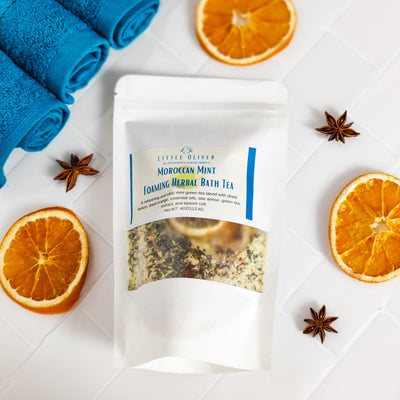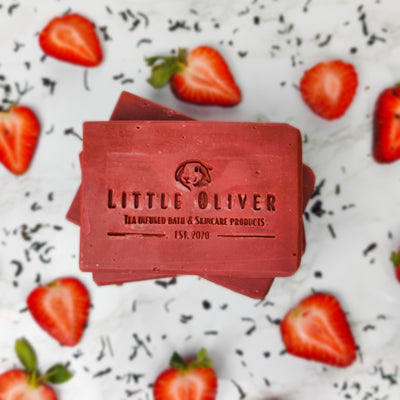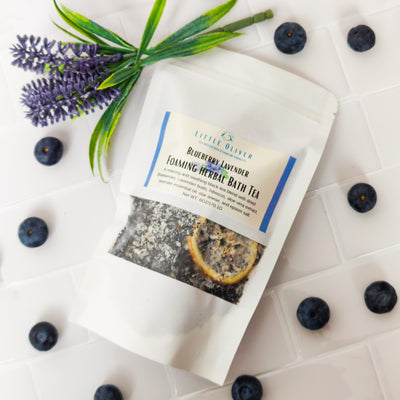8 tips to heal sunburn fast
Posted by Lance Hunter on
8 tips to heal sunburn fast

The summer months are a time that many people look forward to. For those that live in seasonal climates, summer is the few months a year when you can get outside and enjoy life. This is the time to work in the garden, go for a swim, check out a farmers market, attend a wedding, take a vacation, and so much more. There are so many opportunities to frolic in the sun and soak up some energizing vitamin D. However, As our time spent having fun in the sun increases, so too does our chances of suffering a painful sunburn.
What is sunburn?
Sunburn is an inflammatory reaction to skin damage caused by too much exposure to ultraviolet (UV) radiation from the sun or from artificial UV light. It is a common misconception that sunburn is caused by the heat of the sun's rays. Sunburn is actually skin damage caused by radiation rather than thermal heat. For this reason, it is even possible to get a sunburn on a cloudless day when it is cold out. When your skin comes into contact with the sun's UV radiation a series of reactions occur. On contact with the skin's surface, the sun's radiation begins damaging the skin cells. The body releases proteins and enzymes to the skin's surface to repair damaged cells, but if the damage becomes too severe, it may become irreparable and the cells will die. the blood vessels expand to increase blood flow, and Immune cells rush to the skin to fight potential cancerous skin cells. These immune responses and increased blood flow are what causes the redness, inflammation, and the sensation of radiating heat associated with sunburn.
The harm of sunburn
Sunburn is not just painful in the short term, it can also have long term effects on skin health. The most serious of these effects being skin cancer. When the skin is exposed to UV radiation the cells DNA begins to mutate. If our body's immune response can't correct these mutations the affected cells could become cancerous and multiply rapidly. If skin cancer is not caught soon enough, the cancerous cells will enter the bloodstream and spread to other parts of the body. Overexposure to UV radiation also has a negative impact on skin aging through a process called photoaging. The aging of healthy skin is impacted by time and genetics, but with sun damaged skin the aging process can be accelerated due to the added impact of UVA radiation on the cells in the dermal layer that are responsible for skin firmness, tightness, moisture production, and pigment. Chronically sun damaged skin could present several signs of photoaging including leathery appearance and texture, fine wrinkles, skin sagging, hyperpigmentation, liver spots, and dryness.

You might've come to this article because you or a loved one already has sunburn or maybe you're just curious about sunburn treatments. In any case, were here to help you with a few tips on how to alleviate sunburn and help with the healing process.
1. Stay hydrated
After a sunburn, fluids are drawn to the skin's surface to rehydrate the skin and help the healing process. It's important to replenish these fluids to make up for your body's need for extra hydration. Make an extra effort to drink lots of water. Liquid IV hydration packs and small sips of a sports drink like Powerade or Gatorade would also be helpful during this time.
2. Take a break from the sun
Try to stay indoors whenever you can until the sunburn is fully healed. If you must go outside, be sure to protect your skin from worsening sunburn. Seek shade whenever possible and wear clothing that covers the sunburned areas of your skin. A sunhat would be a useful and super stylish addition to your wardrobe also!
3. Run a soothing bath
Taking a cool bath or shower will help soothe the pain and burning sensation. Add a few ingredients to enrich your bath with extra soothing properties. Add aloe vera powder, epsom salts, and chamomile extract to your bath water to help reduce inflammation. Adding about 1/4 to 1/2 cup of baking soda can also help reduce itching.
4. Start using aloe vera soap
Sunburned skin is extra sensitive to dryness and irritation. The bath products that you're used to using on your skin can suddenly feel harsh when you have a sunburn. Swap out your regular soap or body wash with an aloe vera enriched soap. We recommend Little Oliver's aloe vera soap because it is non-drying, ultra gentle, and enriched with a soothing aloe vera and chamomile gel.
5. Cold Compress
A cold wet towel will help reduce inflammation and gently cool the burn. Avoid using an ice pack or ice cubes directly on the sunburn, as applying a freezing cold object to a burn could reduce blood flow to the area and further damage the tissue.
6. Take a pain reliever
Taking a pain reliever like ibuprofen or acetaminophen will help reduce inflammation and lessen the pain and discomfort.
7. Moisturize
Go for a water based moisturizer that Is light weight and easily absorbed into the skin. Keep your skin nice and moisturized to reduce dryness and itching. Sunburned skin will tend to dehydrate faster than healthy skin. Not just any moisturizer will do when it comes to sunburned skin avoid moisturizers with cooling ingredients like menthol as these ingredients could cause further inflammation.
8. Talk to a pharmacist
Go to your local pharmacy and ask the pharmacist for recommendations. A knowledgeable pharmacist can give you information on sunburn treatment and help you find the over the counter products that would work best for your individual needs.
Sunburn Prevention
Taking precautionary measures to protect your skin from sun damage is sometimes overlooked as a part of overall skin care. Avoiding sun damage will help keep your skin healthy and youthful in the long run. Apply a sunscreen with an SPF of 30+ at least 20 minutes before you go outside. Make sure to cover all exposed areas of skin including hands, feet, neck, and face. Remember to reapply your sunscreen every 2 hours while you are outdoors or once every 60 minutes when you are swimming or perspiring heavily. Freshly exfoliated skin is more susceptible to sunburn. Sun exposure should be avoided for 12-24 hours after exfoliating with a scrub or physical exfoliant and 2-5 days after a chemical exfoliant. If you must go outside after exfoliating, be extra generous when applying your sunscreen.
Get out there and enjoy the weather, but remember that sun protection is an important factor in keeping your skin healthy and beautiful!
Share this post
- Tags: aloe vera, aloe vera gel, aloe vera rub, aloe vera soap, skincare, soothing, soothing skin care, sunburn treatment

